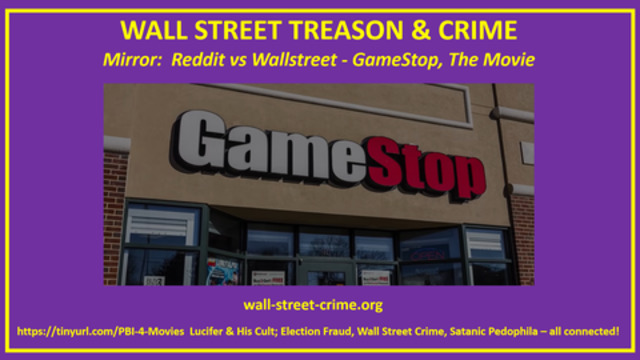Why Is Everyone (Still) Talking About GameStop Stock?
Keith Noonan, 19 March 2021
GameStop (NYSE:GME) has to be 2021’s most interesting stock. The video game retailer started to pick up momentum ahead of the launch of new game consoles from Sony and Microsoft last year, and over the past two months, short-squeeze mania and other big developments have led to incredible swings for the the company’s share price.
GameStop’s stock climbed as high as $483 per share during the height of short-squeeze mania. While the stock briefly returned to trading in the range of $50 per share, it’s bounced back once again and traded at $201.75 at Thursday’s close. That price represents a 971% increase year to date and a 4,715% increase from the $4.19 share price the stock had one year ago.
Why is GameStop surging, and what comes next?
How did we get here?
The start of GameStop’s improbable, supercharged rally can be traced back to the introduction of Sony’s PlayStation 5 console and Microsoft’s Xbox Series X and Series S platforms in 2020. New console launches have historically led to a cyclical upcycle for GameStop’s business and stock performance.
Pricing momentum created by the new hardware launches was further intensified by news that activist investor and Chewy co-founder Ryan Cohen was amassing a large stake in the company and would advocate for pushing the business toward an e-commerce focus.
From there, Reddit’s WallStreetBets group began championing the stock as a potential target for a huge short squeeze. Social media users noticed that enormous short interest had amassed against GameStop — and that a massive run for the stock could potentially be generated through a bit of favorable news and coordinated buying.
Prior to the first major short squeeze, GameStop had about 50 million shares of its stock outstanding. At the same time, roughly 70 million shares of the company’s stock had been sold short — meaning that investors had placed bets against more shares of the company’s stock than actually existed.
Short interest exceeding the company’s actual outstanding share count was made possible through a practice called naked short selling, which allows bets to be placed against shares that haven’t actually been borrowed. WallStreetBets members wound up being right about the squeeze, and GameStop bulls notched incredible gains as short-sellers were forced to buy back the stock at elevated levels in hopes of avoiding massive losses.
A combination of continued short-squeeze momentum and indications that the company would be aggressively pursuing its pivot to online retail have added new chapters to the story of GameStop’s incredible rally, and it currently stands as one of the best-performing stocks of the year. Cohen has been appointed chairman of a new committee to accelerate the business’s online retail push, a bounce for the stock has once again attracted new short interest, and the GameStop saga rages on.
Read Full Article
 CONSIDER this hypothetical scenario: In an effort to pump up the price of his holdings in a loss-making distributor of electronic games, Steve Wong logs on to several investor chat rooms on the Internet to start rumours that the company is about to expand its distribution network to untapped overseas markets, in anticipation of tie-ups with big local champions in their respective domestic markets. Continue reading “Article: Market manipulation using pump-and-dump strategy”
CONSIDER this hypothetical scenario: In an effort to pump up the price of his holdings in a loss-making distributor of electronic games, Steve Wong logs on to several investor chat rooms on the Internet to start rumours that the company is about to expand its distribution network to untapped overseas markets, in anticipation of tie-ups with big local champions in their respective domestic markets. Continue reading “Article: Market manipulation using pump-and-dump strategy”

 Imagine if Goldman Sachs GS -0.5% lent a billion dollars to RoaringKitty.
Imagine if Goldman Sachs GS -0.5% lent a billion dollars to RoaringKitty.